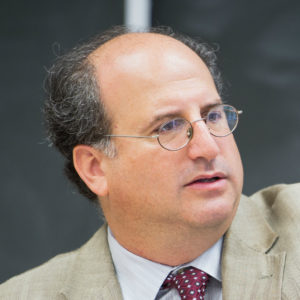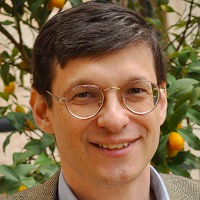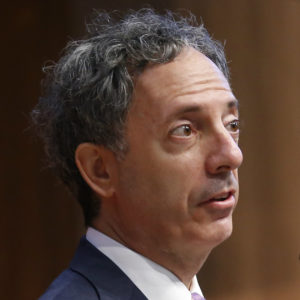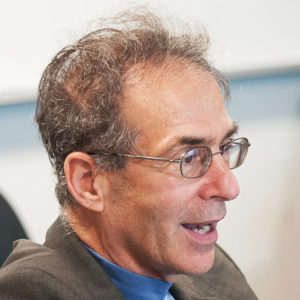Burke & Anglo-American Conservatism
Explore the Anglo-American conservative political tradition through the writings of Edmund Burke.
Summer 2017
Washington, DC
Edmund Burke is the West’s first and arguably greatest conservative thinker. He is an antiphilosophic philosopher and an influential statesman skeptical of what states can do. This week’s reading analyzes a selection of Burke’s political and philosophical writings to understand the paradoxes of his thought in the context of both the Enlightenment in which Burke lived and today’s varieties of liberalism and conservatism.
Our readings give special attention to Burke’s analyses of the moral and political implications of the American and French Revolutions through which Burke lived. These revolutions are arguably the greatest political events of modern times, and Burke was the only thinker of the times to support the American Revolution but not the French. Why? Answering this question involves understanding Burke’s critiques of Enlightenment rationalism and the political and philosophical grounds of the modern movements for democracy and liberalism. In shedding light on the exact nature of Burke’s conservatism, we will also attempt to compare it to contemporaneous and current strands of conservatism and liberalism in order to meditate deeply on the nature of political ideology itself.
Image: James Barry, Portrait of Edmund Burke, oil on canvas, 1774
Alan Levine on the Idea of America in Europe

Alan M. Levine is Associate Professor of political theory in the Department of Government and the founding director of the Political Theory Institute at American University. A specialist in the history of Western political thought, Professor Levine’s research interests include ancient and modern political theory.

Alan M. Levine is Associate Professor of political theory in the Department of Government and the founding director of the Political Theory Institute at American University. He is also an Affiliate Associate Professor in AU’s Department of Philosophy. A specialist in the history of Western political thought, Professor Levine’s teaching and research interests include the theoretical principles of the United States, the concept of “America,” and ancient, renaissance, modern, and postmodern political theory.
His publications include Sensual Philosophy: Toleration, Skepticism, and Montaigne’s Politics of the Self (2001), Early Modern Skepticism and the Origins of Toleration (editor, 1999), and A Political Companion to Ralph Waldo Emerson (co-editor, 2011) as well as articles on Montaigne, Machiavelli, Nietzsche, Chinua Achebe, Judith Shklar, European views of America, the Enlightenment idea of commerce, and the origins of toleration.
He has held fellowships at Princeton’s James Madison Program; the Hoover Institution at Stanford; and the Institute of US Studies, School of Advanced Study, University of London. He has received SPA’s Outstanding Teaching Award (2000 & 2001); SPA’s Outstanding Teaching in General Education Award (2000); and AU’s Award for Outstanding Teaching in the General Education Program (2008). He earned his B.A. at the University of Chicago and his M.A. and Ph.D. at Harvard University.
Suggested Background:
I encourage you to read some historical background if you are unfamiliar with the basic events in America from 1754–75 or with the American and French Revolutions. You might also like to watch the PBS documentary “The War that Made America,” which is on the French-Indian War of 1754–63. This first global war created the conditions that are debated in Burke’s speeches on America.
Other Resources:
To learn more about the ideas and figures discussed in this course, we encourage you to explore a project supported by the Hertog Foundation: The Great Thinkers and Contemporary Thinkers websites. These sites are aimed at introducing important thinkers in Western thought, with a particular emphasis on politics and philosophy. Relevant pages include Plato, Aristotle, Machiavelli, Hobbes, Locke, Burke, and Smith (on The Great Thinkers).
Readings:
Discussion Questions:
Essay on English History:
Thoughts on the Present Discontents:
This is a terrific analysis of the British government of Burke’s time and what Burke considers to be legitimate and illegitimate government, but, alas, the essay is too long for our week. I recommend reading the whole thing, but am requiring only the beginning and end.
Readings:
Discussion Questions:
Speech on American Taxation:
Conciliation with the Colonies:
Should you wish to read on, ask yourself:
Letter to Sheriffs of Bristol on the Affairs of America:
Sketch on the Negro Code:
Readings:
Discussion Questions:
Reflections on the Revolution in France:
Readings:
Discussion Questions:
Readings:
Discussion Questions:

Yoram Hazony
Yoram Hazony is an Israeli philosopher, Bible scholar, and political theorist. He is President of the Herzl Institute in Jerusalem, and Director of the John Templeton Foundation’s project in Jewish Philosophical Theology. His books include The Virtue of Nationalism and The Philosophy of Hebrew Scripture.

Peter Berkowitz
Peter Berkowitz is the Tad and Dianne Taube Senior Fellow at the Hoover Institution, Stanford University. He studies and writes about, among other things, constitutional government, conservatism and progressivism in America, liberal education, national security and law, and Middle East politics.

Matthew Continetti
Matthew Continetti is resident fellow at the American Enterprise Institute, Prior to joining AEI, he was Editor in Chief of the Washington Free Beacon. His articles and reviews have appeared in The New York Times, The Wall Street Journal, and The Washington Post.

James W. Ceaser
James W. Ceaser is Harry F. Byrd Professor of Politics at the University of Virginia, where he has taught since 1976, and a senior fellow at the Hoover Institution. He has written several books on American politics and political thought, including Presidential Selection and Liberal Democracy and Political Science.

Daniel DiSalvo
Daniel DiSalvo is a Senior Fellow at the Manhattan Institute’s Center for State and Local Leadership and an Assistant Professor of Political Science at The City College of New York-CUNY. His scholarship focuses on American political parties, elections, labor unions, state government, and public policy.

Ryan P. Hanley
Ryan Patrick Hanley is Professor of Political Science at Boston College. His research in the history of political philosophy focuses on the Enlightenment. He is the author of Our Great Purpose: Adam Smith on Living a Better Life and Love’s Enlightenment: Rethinking Charity in Modernity.